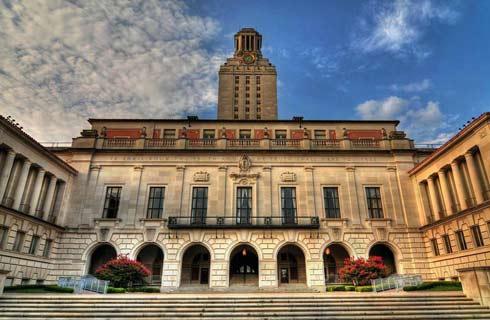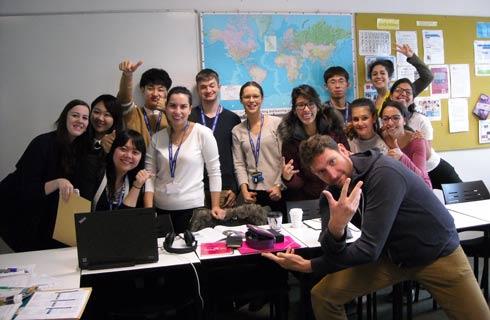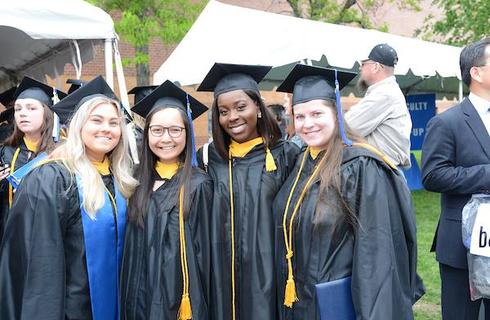荣誉电影学研究专业文学士
Honours Bachelor of Arts in Cinema Studies (Specialist) - St. George

学历文凭
Bachelor Degree with Honours

专业院系
Cinema Studies

开学时间

课程时长

课程学费

国际学生入学条件
IDP—雅思考试联合主办方

雅思考试总分
6.5
了解更多
雅思考试指南
- 雅思总分:6.5
- 托福网考总分:89
- 托福笔试总分:160
- 其他语言考试:Pearson Test of English (PTE) Academic - Overall score of 65 with no part below 60.
CRICOS代码:
申请截止日期: 请与IDP顾问联系以获取详细信息。
课程简介
At the turn of the twentieth century cinema emerged as a new mass entertainment, an art form, a source of information, and a product of economic and social power. Cinema adapted to and absorbed novel technologies, such as sound, color, 3-D, and, later, digital techniques at a rapid pace. As shifting political and economic forces came into play, cinema continued to assume a key role in moving-image culture. During its history, cinema has absorbed seismic shocks in ideas and ideologies, and responded to the shifting politics of race, gender, class, and sexuality that have defined modern society. Now, in the twenty-first century, an evolving mediascape driven by digital technologies offers exciting opportunities to assess the ever-changing role of cinema across global cultures.Because of its status as a major art form and a vital social practice, cinema has assumed a crucial place within the university. The Cinema Studies Institute has, for almost five decades, developed into a major area of academic research, study, and teaching at the University of Toronto and has contributed in pivotal ways to the development of the discipline both in Canada and internationally.Cinema Studies offers courses that reflect the diversity of cinematic experience: film analysis, history, social practice, and theory are at the core of the program. Other topics also receive emphasis, including distinct types of film (such as documentary, animation, and the avant-garde), film genres, media cultures, and new media forms. Our courses explore the global dimension of cinema, investigating national and transnational cinema. They raise issues of how race, class, and gender operate in moving image culture. Cinema Studies offers a range of research methods, scholarly frameworks, and learning opportunities; all are designed to develop students’ abilities to understand cinema within a wide range of contexts - critical, economic, cultural, technological, and aesthetic. Graduates of the Cinema Studies Institute achieve learning outcomes that include a strong historical and theoretical foundation coupled with advanced analytical and critical skills. Our graduates are well-equipped to apply their knowledge to a variety of media-related careers and avocations. They have become arts and entertainment journalists, film programmers, and image archivists, and have found a diversity of positions within the film, television, and new media sectors.
相关申请
 预科
预科 奖学金
奖学金 实习机会
实习机会 在校学习
在校学习 跨境学习
跨境学习 校园授课-线上开始
校园授课-线上开始 在线/远程学习
在线/远程学习
学校排名

世界排名21
数据源:泰晤士高等教育世界大学排名
关于多伦多大学

多伦多大学(University of Toronto),始建于1827年,坐落在加拿大的第一大城市多伦多,是加拿大的一所顶尖学府,亦为加拿大传统四大校之一。安大略省政府及议会环绕在市中心的女王公园四周,现已发展成为一所“一主两翼”格局的世界知名研究性大学--坐落于市中心的圣乔治校区(St. George),历史最为悠久,与3个更小的大学联盟并有享有七大学院制,与十座教学医院有着密切关系;东西向延伸至世嘉堡与密西沙加,UTSC有着乡村般的风光,风景别致,搭乘TTC一小时路程;UTM则是在西边,有校车往返。在学术及研究方面,多伦多大学一直处于领先地位。其经费、捐款、国家教授奖项、研究出版规模和藏书量皆为加拿大之首。多伦多大学出版社在加拿大乃至全北美影响深远。实行独立书院制的学府,荣获诺贝尔奖的教授人数是加拿大最多的。维多利亚学院是其最富有的学院之一 提供更多奖学金和相关设施。多伦多大学亦为美国大学协会中仅有的两所非美国学府之一。多伦多大学每年发表的科研论文数量在北美仅次于哈佛大学,引用数量位居世界前五。主要贡献:干细胞及胰岛素的发现,电子起搏器、多点触摸技术、电子显微镜、抗荷服的发明和发展,NP完全理论,以及发现首个经核证的黑洞。
本校相关课程
其他相关课程

影像艺术美术学士-电影研究
 多伦多都会大学
多伦多都会大学学历文凭
Bachelor Degree
开学日期
课程费用总额


电影学文学士
 劳瑞尔大学
劳瑞尔大学学历文凭
Bachelor Degree
开学日期
课程费用总额


纪录片证书
 卡普兰诺大学
卡普兰诺大学学历文凭
Bachelor Degree
开学日期
课程费用总额


电影电视代理文凭
 尼亚加拉学院
尼亚加拉学院学历文凭
Bachelor Degree
开学日期
课程费用总额


电影研究文学士(高级)
 曼尼托巴大学
曼尼托巴大学学历文凭
Bachelor Degree
开学日期
课程费用总额


电影研究文学士学位(一般)
 曼尼托巴大学
曼尼托巴大学学历文凭
Bachelor Degree
开学日期
课程费用总额
































